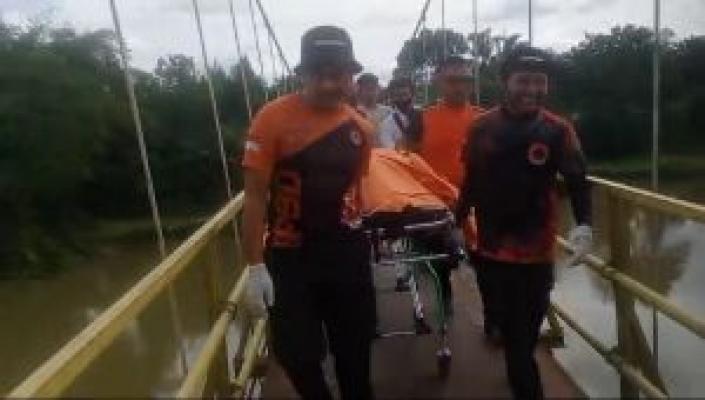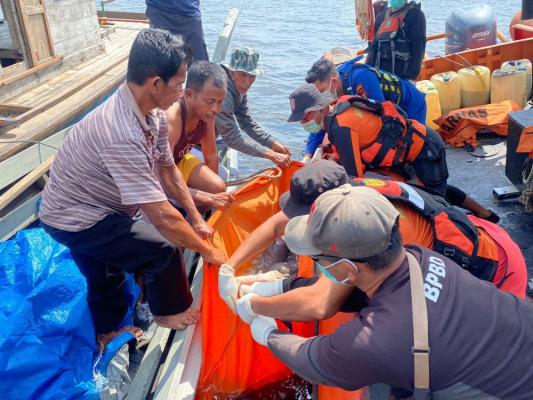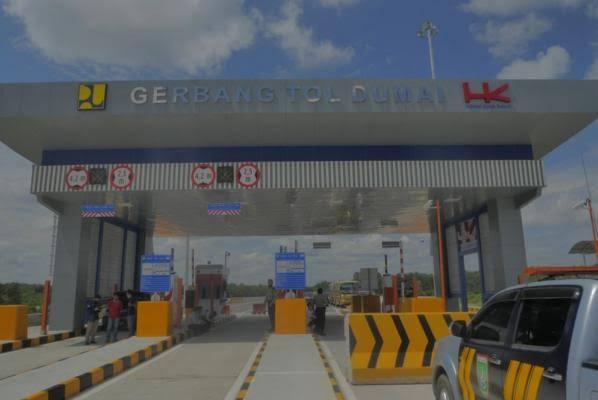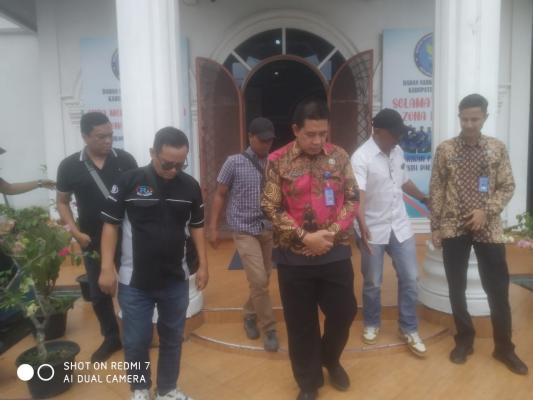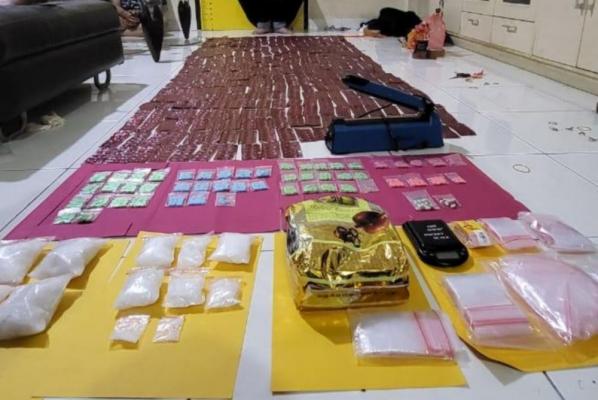- Home
- MediaOutReach
- NIA Selects Eight Thai Medical and Health Innovators to Break into the German and European Markets, Showcasing Strengths at Medica 2024 and Cementing Thailand's Role as a ‘Medical Innovation Hub'
NIA Selects Eight Thai Medical and Health Innovators to Break into the German and European Markets, Showcasing Strengths at Medica 2024 and Cementing Thailand's Role as a ‘Medical Innovation Hub'
Jumat, 27 Desember 2024 | 09:54
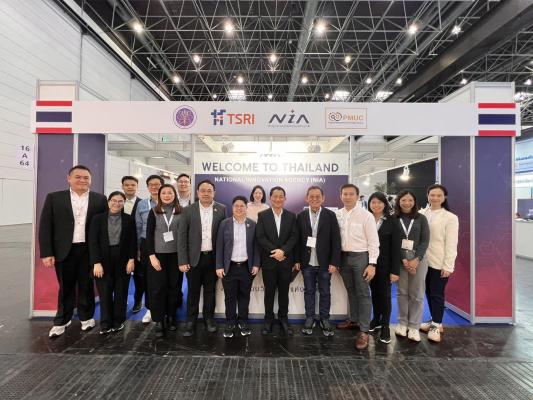
Dr Krithpaka Boonfueng, Executive Director of the National Innovation Agency (Public Organisation), along with Professor Emeritus Dr Sirirurg Songsivilai, Chairman of the Board of Science, Research, and Innovation Promotion (GSRI), and a delegation of executives and staff from NIA, visited the exhibition booth showcasing the achievements of eight medical and health innovation startups supported by NIA. The visit took place at the Medica 2024 event in the Federal Republic of Germany.
BANGKOK, THAILAND -
Media OutReach Newswire
- 27 December 2024 - The Ministry of Higher Education, Science,
Research, and Innovation (MHESI), through the National Innovation Agency
(Public Organization) or NIA, is forging ahead to support
high-potential Thai startups and SMEs in the medical and health
innovation sectors, granting them access to Germany, one of Europe's
largest and most significant MedTech markets. As part of the 'Digital
Innovation Business Development Programme for Connecting to
International Markets and Funding in Europe,' NIA has selected eight
outstanding Thai medical and health innovation startups and SMEs that
have received prior NIA backing. These companies will showcase their
cutting-edge innovations at Medica 2024 in the Federal Republic of
Germany. The initiative aims to propel Thai medical innovations to
global prominence and establish stronger footholds in the European
market. Medica 2024 offers a critical platform for connecting Thai
innovators with international opportunities, reinforcing Thailand's
reputation as a global leader in medical and health innovation.
Dr. Krithpaka Boonfueng, Executive Director of the National Innovation Agency (Public Organization) or NIA, stated that NIA, in its role as a 'Focal Conductor of Innovation,' is dedicated to nurturing and enhancing the capabilities of Thai innovators to achieve sustainable growth. This commitment is guided by the '4G Approach': Groom: Fostering and strengthening the potential of Thai innovators. Grant: Providing financial mechanisms to develop and scale innovative businesses to market readiness. Growth: Accelerating the expansion of both startups and SMEs in the innovation ecosystem. Global: Propelling Thai innovators onto the international stage.
Thailand's medical industry, a standout sector, benefits from one of the world's top-ranking healthcare systems. The global MedTech market is projected to soar to 775.8 billion US dollars by 2029, with Germany emerging as a particularly promising market. Germany's long-standing role as host of the world-renowned Medica trade fair for over 40 years underscores its importance. Recognised by experts as the largest medical trade exhibition globally, Medica attracts more than 6,100 exhibitors from 69 countries, solidifying its status as a pivotal platform for the medical and healthcare sectors.
Dr Krithpaka added that the NIA is proud to participate in Medica 2024 under the theme 'Meet Health. Future. People,' hosted in the Federal Republic of Germany. As part of this prestigious event, eight outstanding Thai medical and healthcare innovation startups and SMEs, selected through a rigorous process, will showcase their pioneering solutions. These include: Eidy: A large language model (LLM) tailored for medical applications, distinguished by its specialised terminology and physician-like reasoning. It holds potential for developing chatbots designed to address specific medical queries. Ravis Technology: A platform for managing clinical research and data related to biopharmaceuticals, medical devices, and drugs. By leveraging technology to streamline data management, it saves time and costs. Pose Intelligence: A medical equipment management platform for hospitals, providing precise inventory control and central supply management. It reduces redundancy and minimises errors with its efficient systems. SOS Care: An innovative wound dressing made from silk protein combined with carboxymethyl cellulose (CMC) and glycerin. This flexible dressing promotes collagen production, accelerating wound healing. POPOLO: A device designed to band oesophageal varices caused by abnormal blood flow to the liver. This innovation enhances accessibility for Thai patients and reduces mortality rates.
Orthopeasia: A cutting-edge platform for designing and producing spinal disc replacements using specialised software. Its innovation simplifies surgical procedures, ensuring smaller incisions, faster operations, and improved convenience for both surgeons and patients. BRE: A revolutionary two-step bathing sheet that eliminates the need for water and soap, providing a practical solution for patients unable to bathe, significantly enhancing their quality of life. Aquatrek Solution: A water treadmill, an advanced hydrotherapy device ideal for reducing the risks associated with exercise, particularly for the elderly. It minimises joint strain while supporting body weight, making it highly effective for rehabilitation and therapy.
These eight groundbreaking innovations have garnered considerable interest from partners and potential collaborators across the United States, Europe, and Canada, seeking to exchange technologies and customer bases. Collaborative research opportunities, such as co-publishing with German academics, hosting researcher exchange programmes, or licensing specific or complete production technologies for German manufacturing, could significantly bolster the credibility of Thai medical devices.
Research partnerships are a gateway to greater acceptance in the European market. Furthermore, studying attendee and exhibitor profiles at Medica 2024 offers invaluable insights for refining Thai innovations and devising strategic marketing approaches. These initiatives could stimulate investments, foster business matchmaking, and pave the way for cross-border collaborations, driving future advancements in medical innovation.
Ms Maleepan Phasupong, from Ravis Technology Co Ltd, a developer of clinical research management platforms, shared her perspective on being selected to participate in the global medical and health innovation showcase Medica 2024. She highlighted that this prestigious event provided invaluable insights into the European market's overall needs, particularly in the realms of digital solutions, health and physical care devices, and diagnostic tools. Beyond helping Thai startups align their innovations with market demands, it serves as a pivotal starting point for achieving real business partnerships.
By showcasing Thailand's research strengths, especially to Western countries increasingly interested in collaborative research with Thailand, the event bolstered international recognition. This growing interest is particularly evident in the West, where there is a notable trend towards exploring research partnerships in Thailand.
During the event, the company secured discussions with five potential partners and clients, with follow-ups already underway. German STEM researchers, in particular, have expressed interest in exchanges with Thailand to reduce costs associated with services and production within Europe, such as clinical research expenses or medical device manufacturing. This highlights the tangible opportunities created through platforms like Medica, not only for networking but also for fostering deeper international collaboration and reducing operational costs.
Mr Thanatpant Manosittisak of SOS Care Co Ltd, developer of silk-protein wound dressings, emphasised that Thai medical and health startups and SMEs have strong potential to thrive in global markets if provided with adequate support in terms of funding, resources, and technological development. He pointed out that Thailand's lower production costs, compared to developed nations, present a competitive advantage. However, government support is crucial to propel these startups and SMEs into forming international collaborations and expanding their market and business networks.
Such backing enhances their credibility and strengthens confidence in the quality and innovation of Thai products on the global stage. Mr Thanatpant expressed hope that participating in Medica 2024 would enable his company to secure distributors across Europe, Asia, and the Middle East, thereby driving further international market expansion.
Dr. Krithpaka Boonfueng, Executive Director of the National Innovation Agency (Public Organization) or NIA, stated that NIA, in its role as a 'Focal Conductor of Innovation,' is dedicated to nurturing and enhancing the capabilities of Thai innovators to achieve sustainable growth. This commitment is guided by the '4G Approach': Groom: Fostering and strengthening the potential of Thai innovators. Grant: Providing financial mechanisms to develop and scale innovative businesses to market readiness. Growth: Accelerating the expansion of both startups and SMEs in the innovation ecosystem. Global: Propelling Thai innovators onto the international stage.
Thailand's medical industry, a standout sector, benefits from one of the world's top-ranking healthcare systems. The global MedTech market is projected to soar to 775.8 billion US dollars by 2029, with Germany emerging as a particularly promising market. Germany's long-standing role as host of the world-renowned Medica trade fair for over 40 years underscores its importance. Recognised by experts as the largest medical trade exhibition globally, Medica attracts more than 6,100 exhibitors from 69 countries, solidifying its status as a pivotal platform for the medical and healthcare sectors.
Dr Krithpaka added that the NIA is proud to participate in Medica 2024 under the theme 'Meet Health. Future. People,' hosted in the Federal Republic of Germany. As part of this prestigious event, eight outstanding Thai medical and healthcare innovation startups and SMEs, selected through a rigorous process, will showcase their pioneering solutions. These include: Eidy: A large language model (LLM) tailored for medical applications, distinguished by its specialised terminology and physician-like reasoning. It holds potential for developing chatbots designed to address specific medical queries. Ravis Technology: A platform for managing clinical research and data related to biopharmaceuticals, medical devices, and drugs. By leveraging technology to streamline data management, it saves time and costs. Pose Intelligence: A medical equipment management platform for hospitals, providing precise inventory control and central supply management. It reduces redundancy and minimises errors with its efficient systems. SOS Care: An innovative wound dressing made from silk protein combined with carboxymethyl cellulose (CMC) and glycerin. This flexible dressing promotes collagen production, accelerating wound healing. POPOLO: A device designed to band oesophageal varices caused by abnormal blood flow to the liver. This innovation enhances accessibility for Thai patients and reduces mortality rates.
Orthopeasia: A cutting-edge platform for designing and producing spinal disc replacements using specialised software. Its innovation simplifies surgical procedures, ensuring smaller incisions, faster operations, and improved convenience for both surgeons and patients. BRE: A revolutionary two-step bathing sheet that eliminates the need for water and soap, providing a practical solution for patients unable to bathe, significantly enhancing their quality of life. Aquatrek Solution: A water treadmill, an advanced hydrotherapy device ideal for reducing the risks associated with exercise, particularly for the elderly. It minimises joint strain while supporting body weight, making it highly effective for rehabilitation and therapy.
These eight groundbreaking innovations have garnered considerable interest from partners and potential collaborators across the United States, Europe, and Canada, seeking to exchange technologies and customer bases. Collaborative research opportunities, such as co-publishing with German academics, hosting researcher exchange programmes, or licensing specific or complete production technologies for German manufacturing, could significantly bolster the credibility of Thai medical devices.
Research partnerships are a gateway to greater acceptance in the European market. Furthermore, studying attendee and exhibitor profiles at Medica 2024 offers invaluable insights for refining Thai innovations and devising strategic marketing approaches. These initiatives could stimulate investments, foster business matchmaking, and pave the way for cross-border collaborations, driving future advancements in medical innovation.
Ms Maleepan Phasupong, from Ravis Technology Co Ltd, a developer of clinical research management platforms, shared her perspective on being selected to participate in the global medical and health innovation showcase Medica 2024. She highlighted that this prestigious event provided invaluable insights into the European market's overall needs, particularly in the realms of digital solutions, health and physical care devices, and diagnostic tools. Beyond helping Thai startups align their innovations with market demands, it serves as a pivotal starting point for achieving real business partnerships.
By showcasing Thailand's research strengths, especially to Western countries increasingly interested in collaborative research with Thailand, the event bolstered international recognition. This growing interest is particularly evident in the West, where there is a notable trend towards exploring research partnerships in Thailand.
During the event, the company secured discussions with five potential partners and clients, with follow-ups already underway. German STEM researchers, in particular, have expressed interest in exchanges with Thailand to reduce costs associated with services and production within Europe, such as clinical research expenses or medical device manufacturing. This highlights the tangible opportunities created through platforms like Medica, not only for networking but also for fostering deeper international collaboration and reducing operational costs.
Mr Thanatpant Manosittisak of SOS Care Co Ltd, developer of silk-protein wound dressings, emphasised that Thai medical and health startups and SMEs have strong potential to thrive in global markets if provided with adequate support in terms of funding, resources, and technological development. He pointed out that Thailand's lower production costs, compared to developed nations, present a competitive advantage. However, government support is crucial to propel these startups and SMEs into forming international collaborations and expanding their market and business networks.
Such backing enhances their credibility and strengthens confidence in the quality and innovation of Thai products on the global stage. Mr Thanatpant expressed hope that participating in Medica 2024 would enable his company to secure distributors across Europe, Asia, and the Middle East, thereby driving further international market expansion.
BERITA LAINNYA
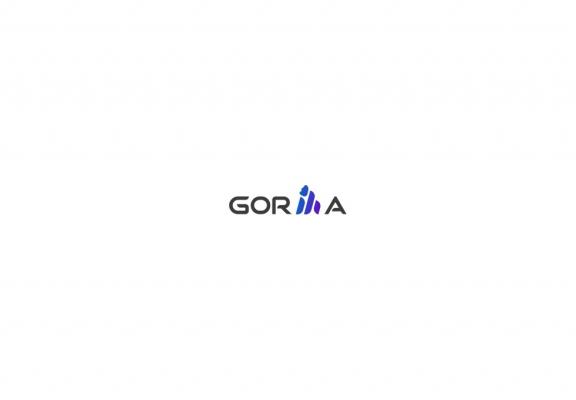
Jumat, 27 Desember 2024 | 22:12

Jumat, 27 Desember 2024 | 22:11

Jumat, 27 Desember 2024 | 22:09
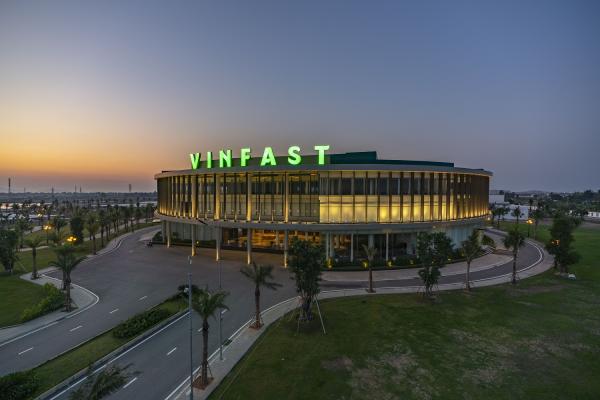
Jumat, 27 Desember 2024 | 22:08
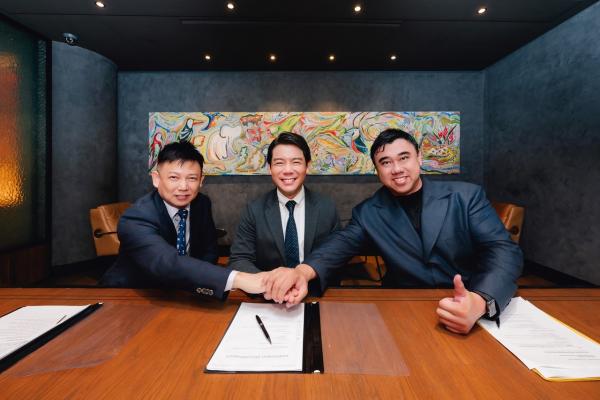
Jumat, 27 Desember 2024 | 11:06

Jumat, 27 Desember 2024 | 11:05

Jumat, 27 Desember 2024 | 09:54

Jumat, 27 Desember 2024 | 09:53
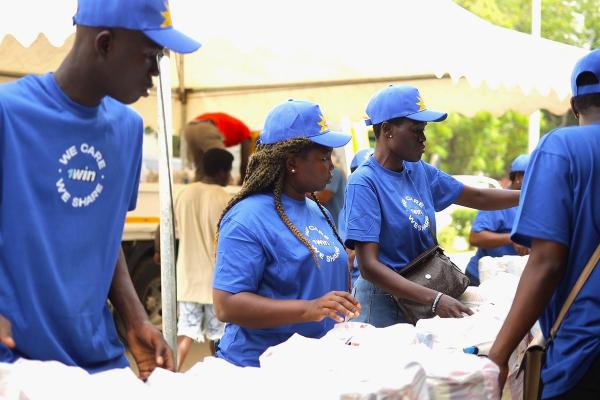
Jumat, 27 Desember 2024 | 09:52

Jumat, 27 Desember 2024 | 09:51
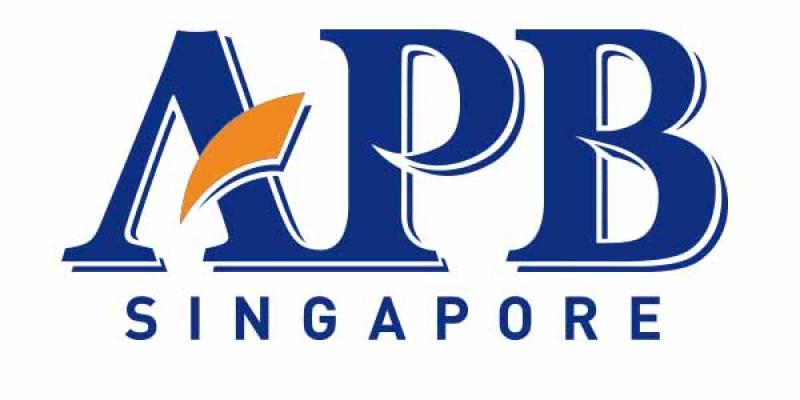
Jumat, 27 Desember 2024 | 09:47
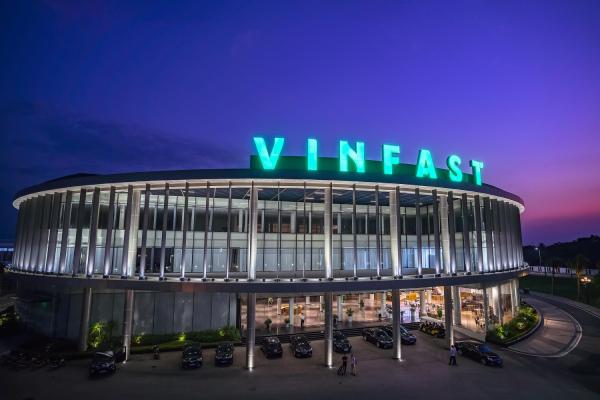
Jumat, 27 Desember 2024 | 09:46







